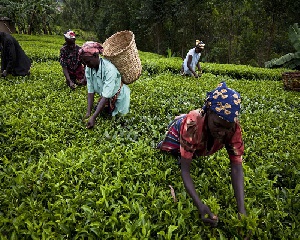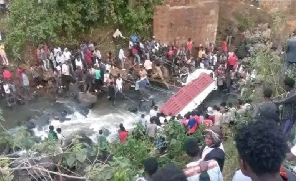About 30,000 smallholder legume farmers in the Northern Region are to benefit from a grant worth US$689,984 to help boost production of legumes using rhizome inoculant technology.
Out of the number 9,000 are women, representing 30 percent selected from five regions: namely the Northern, Upper West, Upper East, Volta and Brong Ahafo Regions.
The project was initiated by the Council for Scientific and Industrial Research (CSIR)-Savanna Agricultural Research Institute (SARI), in partnership with EMBRAPA Agro-biology and the Kwame Nkrumah University for Science and Technology (KNUST).
The project is expected to increase the yields of cowpea, groundnut and soybean of smallholder farmers in Northern Ghana by about 30-50 percent, through the use of locally produced high quality rhizobium inoculants and strategic applications of phosphorous fertiliser.
This was announced at the Food Security and Climate Change Project held in Tamale dubbed the ‘M-BoSs Project’.
The M-BoSs project seeks to enhance the capacity of beneficiary farmers to produce quality foods that meet standards of the market and consumers.
The AGRA-sponsored project is also to reinforce the skills of Ghanaian professionals needed to run the inoculant production unit, the quality control of the inoculants, and validation of the product’s efficacy in the field.
Speaking at the launch, the Director General of CSIR Ghana, Dr. V.K. Agyeman, said the research institute is committed to helping enhance the quality of agriculture to improve food security.
“The investment in the nation’s agriculture will help boost the sector by increasing yields of farmers to meet the citizens’ demands,” he said.
Dr. Agyeman further stated that the project will encourage the youth to go into agriculture and make it more attractive.
The Brazilian Co-leader of EMBRAPA, Agrobilogia Dr. Luc Rouws, reiterated the Brazilian government’s commitment to enhancing agriculture in Ghana, adding that the project will help alleviate the poverty and unemployment rates.
The Director of SARI, Dr. S. K. Nutsugah, said the project forms part of the medium-term Agriculture Sector Investment Plan (METASIP)) to ensure food security in the country and revenue generation for the farmers.
“It will help to improve infrastructure for screening and testing rhizobium strains for cowpea groundnut and soybean, and strengthen the supply chain from the production unit at SARI.”
The Ghana Co-Leader of the project, Dr. Benjamin D.K. Ahiabor, said the capacity of farmers, agricultural extension officers and implementers will be enhanced to ensure value for money.
The inoculants production project is geared toward empowering farmers to achieve sustainable production, with an added value of achieving sustainable land use for agriculture.
Click to view details



Business News of Monday, 5 February 2018
Source: thebftonline.com

















